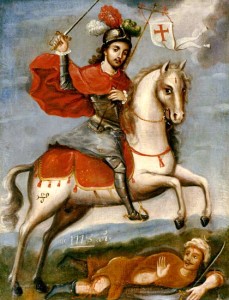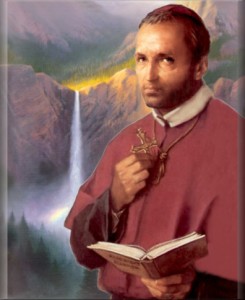
St. Alphonsus Liguori (1696-1787)
Image: Fr. Julian’s Blog
Born in Italy Naples, Alphonsus father was a Naval Officer –A child prodigy according to SQPN Alphonsus was extremely well educated receiving his Juris Doctorate from the University of Naples by the age of 16 and had his own legal practice when he was but 21 soon becoming one of the leading lawyers in Naples — A little unknown fact about Alphonsus, he would never go to Court without first Celebrating Mass.
Alphonsus loved music and could play the harpsichord, likewise often attend the Opera which he loved and would go on to compose numerous Classical works — As Alphonsus matured in years and learned even more of the world he began to like it less-and-less.
The turning point in Alphonsus’ legal career came in 1723 when he was representing a litigant in a civil case which involved a substantial amount of money. Alphonsus misunderstood a critical piece of documentary evidence, suffering a humiliating defeat, Alphonsus would leave the Court House that day, never again to return, he likewise became so anguished that he didn’t eat for three days.
Later that year in August, while Alphonsus was visiting the sick at a local hospital, he had a ‘life changing experience’ — seeing a mysterious light as the building shook and hearing the voice of God telling him to “leave the world” and place himself totally in His service.
Alphonsus father already dismayed that his son abandoned a brilliant legal career opposed his plan to become a Priest but his stubborn son Alphonsus would not be dissuaded and following completion of his Theological studies, Alphonsus Liguori was Ordained a Priest in 1726
Fr. Liguori worked as a missionary around Naples becoming known for his simple, clear and direct style of preaching, with a gentle and understanding spirit in the Confessional, according to SQPN — Fr. Liguori would find him often at odds with Church officials for his perceived laxity of parishioners and government officials who opposed anything religious.
In 1729 Fr. Liguori met an older Priest, Fr. Thomas Falcoia who envisioned the founding of a new religious order, with the aim of imitating Jesus Christ’s virtues more perfectly — In 1731 a local Nun had a vision in which Jesus Christ Himself indicated that he had chosen Fr. Alphonsus Liguori to lead a new religious order.
Within a year, the ‘Congregation of the Most Holy Redeemer’ better known as the The Redemptorists had its formal beginning. During its early years, Fr. Alphonsus Liguori struggled to keep the new Order from fragmenting, while continuing to travel, write, preach and above all pray. In 1749 The Redemptorists statutes and rule of life received formal approval from Pope Benedict XIV
Despite the approval The Redemptorists met with hostility from the Prime Minister of Naples Bernardo Tanucci, who sought to eliminate the privileges of the Church and secularize the kingdom. Tanucci refused to acknowledge the legitimacy of The Redemptorists which was consequently in danger of state suppression for decades.
Against his own will, Fr. Alphonsus Liguori reluctantly became the Bishop of Naples’ small Diocese of St. Agatha in 1762 and for the next 13 years, he would serve the poor and effectively would reform Church institutions that had fallen into serious disorder — Though he felt disappointed with his own work and would ask a series of Pope’s to accept his resignation.
Bishop Alphonsus Liguori also struggled with declining health and was partially paralyzed during the final two decades of his life, he would receive ‘The Anointing of the Sick’ eight times prior to his final reception at death.
In 1775, Pope Pius VI finally permitted Bishop Alphonsus Liguori to resign from his Diocese–the good Bishop Liguori was expecting death to come soon and began preparing accordingly, he would however recover and would survive more than a decade following his resignation.
On this date in 1787 Bishop Alphonsus Liguori passed away during the middle of the day, his death coincided with the bells that were calling the faithful to pray the Angelus. During his life, Bishop Liguori gave the Church more than 100 books, including The Glories of Mary the Preparation for Death and The Passion and Death of Jesus Christ together with leading a religious Order that survives to this day in service to God throughout the world.
Bishop Alphonsus Liguori was Beatified in 1816 by Pope Pius VII and Canonized in 1839 by Pope Gregory XVI
More here from Franciscan Media and here from EWTN
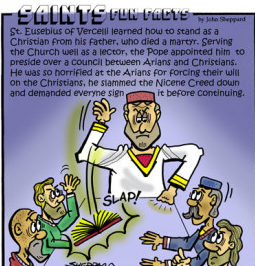

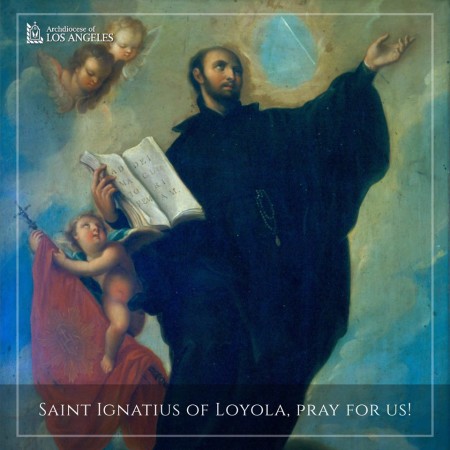 Saint Ignatius of Loyola (1491-1556)
Saint Ignatius of Loyola (1491-1556)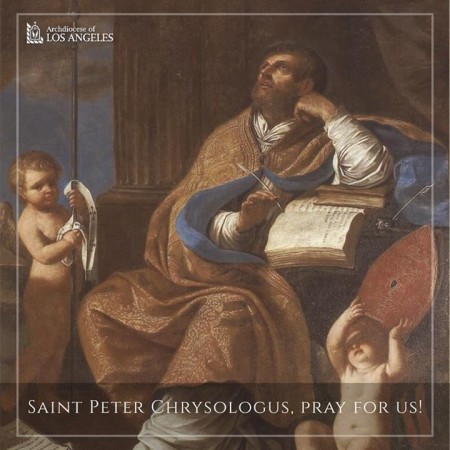 Saint Peter Chrysologus
Saint Peter Chrysologus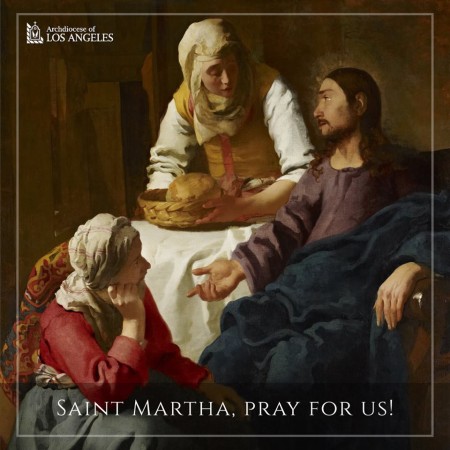 Saint Martha — Image Courtesy: Archbishop Jose Gomez
Saint Martha — Image Courtesy: Archbishop Jose Gomez 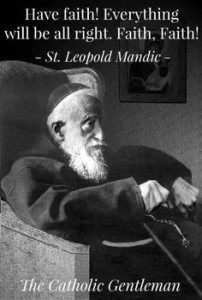
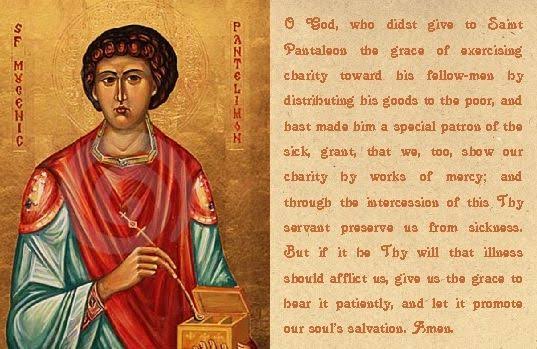 St. Panteleon (275-305)
St. Panteleon (275-305)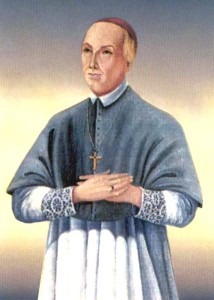
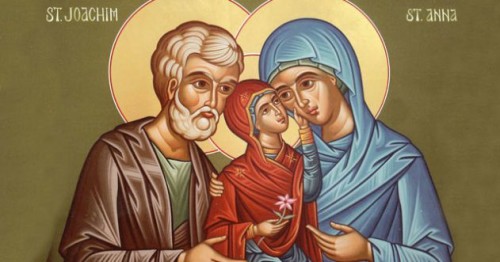 Saint Joachim & Saint Anne
Saint Joachim & Saint Anne